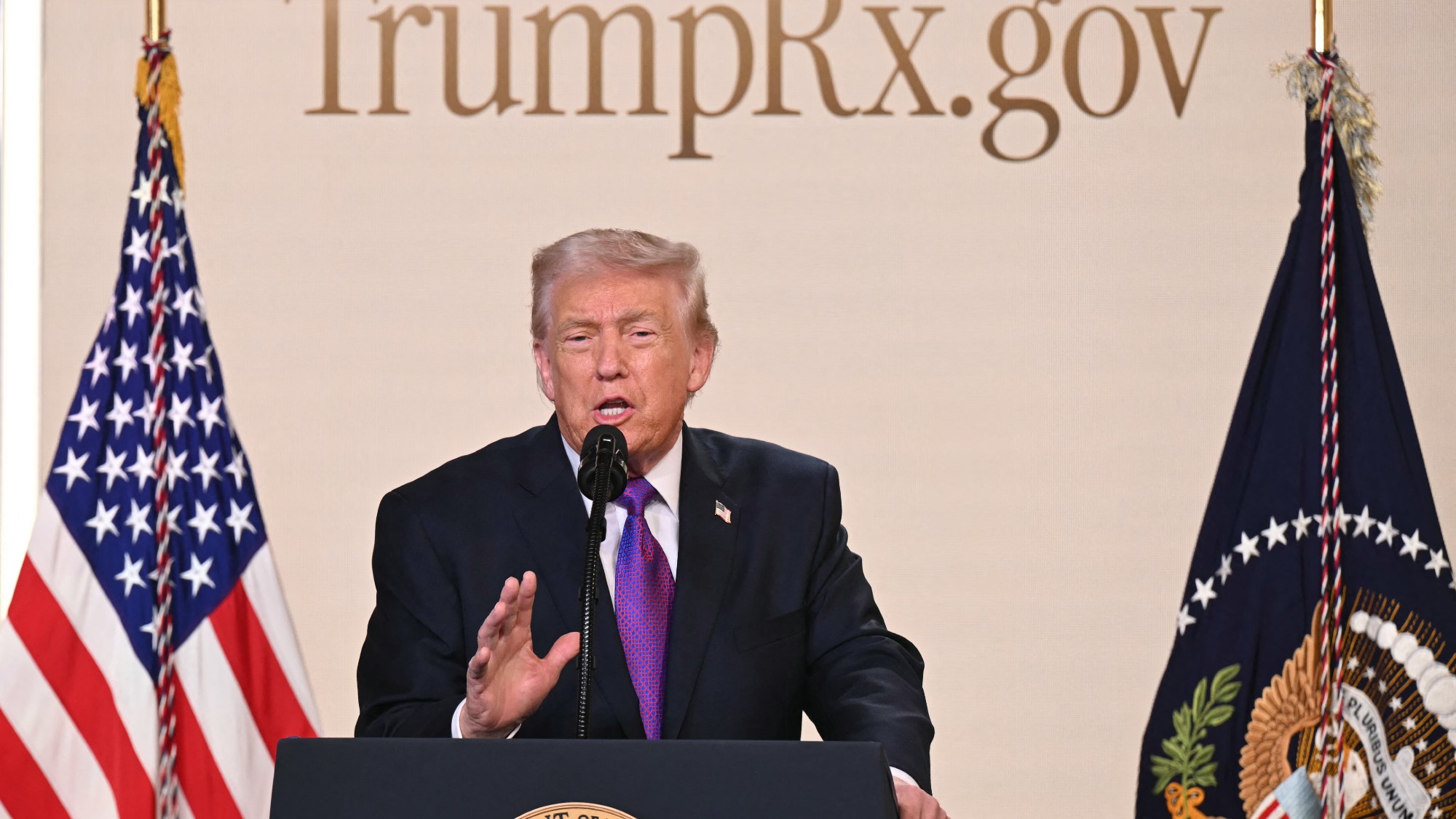Cuba's creepy future: Beijing meets Dubai meets Coachella
Don't expect a happy ending


A free daily email with the biggest news stories of the day – and the best features from TheWeek.com
You are now subscribed
Your newsletter sign-up was successful
Forging ahead with the so-called "normalization" of relations with Cuba, the Obama administration has duly removed the former rogue regime from Uncle Sam's official list of state sponsors of terrorism. Soon to come: a mutual reopening of embassies, first-time Cuban participation in the Summit of the Americas, and other certain delights.
To ponder the Cuba of the future is to stoke our deepest fantasies about the future of the human race. It's not every day that prospects for sweeping, benign change look quite so robust and fresh. Most places on Earth are either "mature" democracies or "hopeless" cases. In our newly rejuvenated imagination, Cuba is neither.
Instead, Cuba offers idealists of every stripe a shot at watching enlightened progress in action. Catholics and other Christians can smile as the yoke of outdated political disputes is lifted from a hardy and patient people. Capitalists can queue up for a once-in-a-lifetime shot at penetrating a unique and dazzling market. Liberals can congratulate themselves on using peaceful means to guide a marginalized people toward international inclusion and respect.
The Week
Escape your echo chamber. Get the facts behind the news, plus analysis from multiple perspectives.

Sign up for The Week's Free Newsletters
From our morning news briefing to a weekly Good News Newsletter, get the best of The Week delivered directly to your inbox.
From our morning news briefing to a weekly Good News Newsletter, get the best of The Week delivered directly to your inbox.
Only hawkish conservatives, it seems, are stuck grumping around. For them, Obama's moves reward despotism and undermine America's national security interests. For them, just as the regime wound up on its last legs, the president threw it a lifeline that can probably never be pulled away.
Conservatives' glum mood, however, has diverted their attention away from what ought to be everyone's real source of concern about the Cuba of tomorrow. Conditions in the island nation may seem ripe for a renaissance. But what's more likely is the birth of a weirdly intoxicating but quietly liberty-sapping place, something unnervingly akin to Beijing, or maybe Dubai.
Why? Because even as the odds of Cuba's liberalization increase, actual Cubans face an acute version of the peril facing all countries "late" to the democratization party. As democratic pessimists like the philosopher John Gray have observed, if you want to glimpse the ugliest implications of the trendiest political and economic movements, you should look to the places where they've been unleashed with the most novelty and the least resistance. Gray's favorite example is Russia, where the outbreak of globalization, modernization, and apparent liberalization quickly manifested in a social system that used those things as means to almost contradictory ends.
The pattern repeats in China and the Persian Gulf, where capitalism begets so-called "state capitalism." Pre-globalization structures, habits, and mores are wiped away by a culture that paradoxically combines greater individual license with greater collective control. People find that if their country has liberalized a lot socially, it has liberalized only a little economically, and hardly any politically, if at all.
A free daily email with the biggest news stories of the day – and the best features from TheWeek.com
We Americans are no strangers to the all-too-easy way in which social liberalization finds a home in fundamentally illiberal regimes. The dynamic is at the heart of the debates roiling life today on just about every college campus. It's what has the far left so bitter about the apparent inevitability of Hillary Clinton's nomination.
It's even what has so many culture critics complaining about the music festival circuit. For the sake of edifying provocation, let's compare the future of Cuba to the present day in Coachella — an ultra-monitored society where anything goes at the exclusive margins; where the mushy middle remains simultaneously resource-scarce and conspicuously consumptive; and where the administrative center stays aloof and hidden while ubiquitous enforcers mete out instant punishment with no prospect of appeal.
With this kind of mix of appetitive and disciplinary dynamism, once-important social ideas like "autonomy," "openness," and even "liberty" are likely to become irrelevant at best and unthinkable at worst. The conduct of everyday life just squeezes them out of experience and out of mind.
Cuba is in a rare and unenviable position, like an Amish teen plunged into the naked public square by a hot new reality show. Although it is never too late to write off the possibility of a happy ending, Cuba's transition toward what is to come offers today's manipulative and ambitious operators an unparalleled chance at wish fulfillment.
The great insight in practical illiberalism today is that everyone can get a slice of the pie — bloated bureaucrats, rapacious developers, professional hedonists, moneyed sociopaths, and ordinary people just out to marginally increase their sense of well-being.
Cuba is on the verge of becoming the latest and greatest test case for 21st century illiberalism. Who among our opportunistic triumphalists can curb their enthusiasm enough to recognize the danger?
James Poulos is a contributing editor at National Affairs and the author of The Art of Being Free, out January 17 from St. Martin's Press. He has written on freedom and the politics of the future for publications ranging from The Federalist to Foreign Policy and from Good to Vice. He fronts the band Night Years in Los Angeles, where he lives with his son.
-
 Democrats seek calm and counterprogramming ahead of SOTU
Democrats seek calm and counterprogramming ahead of SOTUIN THE SPOTLIGHT How does the party out of power plan to mark the president’s first State of the Union speech of his second term? It’s still figuring that out.
-
 Climate change is creating more dangerous avalanches
Climate change is creating more dangerous avalanchesThe Explainer Several major ones have recently occurred
-
 What’s TrumpRx and who is it for?
What’s TrumpRx and who is it for?The Explainer The new drug-pricing site is designed to help uninsured Americans
